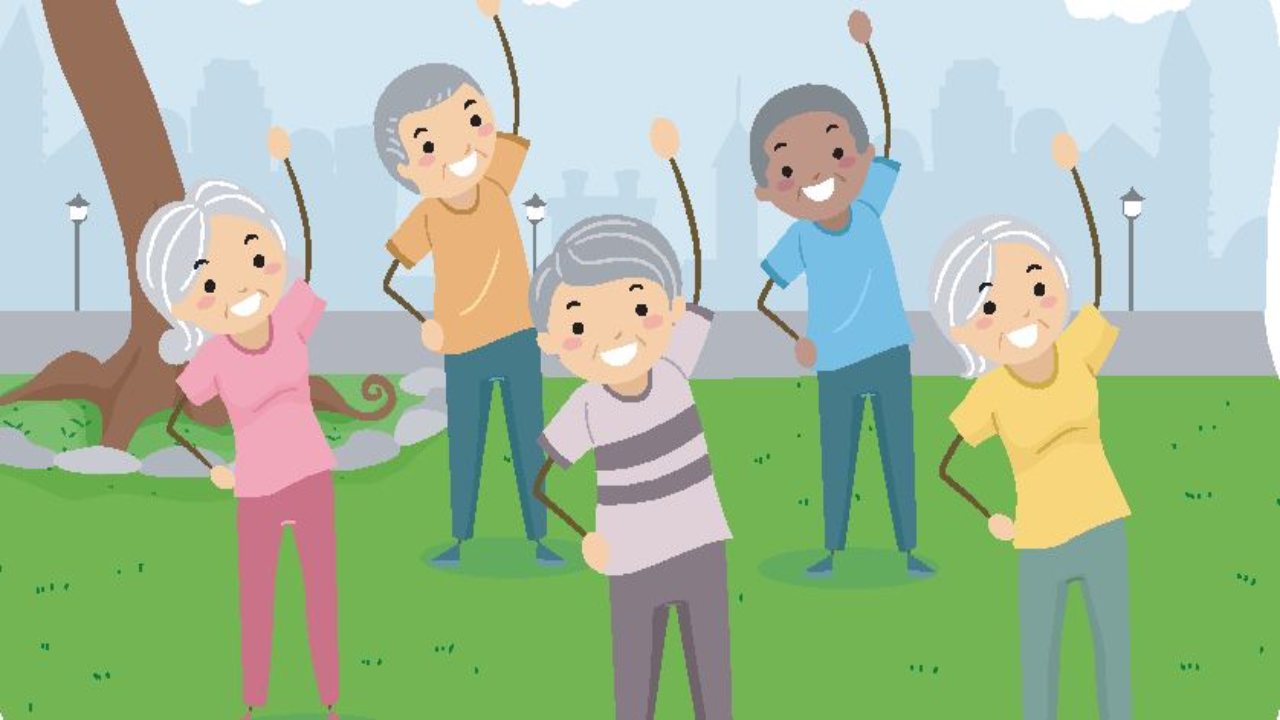Senior citizens have myriad complaints. I am tired, constipated, my body aches, I am forgetful, I am breathless, I can no longer lift anything, objects fall from my hands — are some of the refrains. Worst of all, elders say, “I no longer want to live.” Well-meaning relatives reinforce these negative, helpless feelings: “You are old and tired, lie down, there is no need for you to continue working.” The net result is that the zest for life is gone, and from there on it is a slow downward spiral. This malaise can set in at any age. Some people even decide to “fade out” at 40!
It is essential to remain occupied. Try not to give up your job or profession. Even when retired or laid off, try getting some sort of part-time job or occupation, or just give tuition. The brain needs to be challenged. Otherwise, if only a few pathways are constantly used, the others get rusty due to misuse. The brain connections gradually die, leaving you forgetful and confused.
The same disuse can start in the muscles too. Disuse atrophy or sarcopenia occurs gradually with age. This atrophy occurs due to a lack of stimulation of muscle fibres at the molecular level. As the fibres die gradually, muscle reduces. Joints are no longer kept firmly in place. Arthritis and joint pains set in. Balance is affected. Reaction time is slowed. Objects are dropped. Falls may occur.
It is possible to prevent deterioration. Lost muscle mass can also be regained. Aerobic exercises like walking should be done for 150 minutes a week. That works out to a little over 20 minutes a day. Initially, this can be split up into 2-3 segments if continuous walking seems difficult. Pace and distance must be increased gradually.
The aerobic activity needs to be combined with stretching and strengthening. Dumb-bells or one-litre bottles filled with water can be used as weights. Yoga helps with flexibility.
Proper digestion and regular bowel movements require toned abdominal muscles. That will prevent bloating and force the bowels to move regularly and efficiently.
Fatigue induced by physical exercise prevents stress. The large muscles in the calf and thigh release chemicals during exercise. This reduces stress, elevates mood and promotes sleep. This is better than “sleeping tablets” in increasing doses. Worrying does not solve problems or make them disappear.
A “sluggish” feeling can occur because the body and the brain are not getting enough oxygen and energy-boosting nutrients. Exercise not only produces “mood elevators”, it promotes the manufacture of chemical growth factors also. These produce an overall feeling of well-being and boost blood supply to the brain too. As a result, cognition, structured analysis, memory and decision making improve.
Resting and sitting more reduces cardiovascular fitness. Blood pressure can rise, and heart rates can vary instead of remaining steady and regular. Muscles utilise more energy than fat. If muscles undergo sarcopenia, they are replaced by fat. They use calories less efficiently. Blood sugars are then likely to rise and remain uncontrolled, despite eating less.
Exercise increases the heart rate and pumps blood efficiently. It also boosts the immune system. As a result, common colds and other viral infections decrease in frequency and virulence. “Downtime” is less, and recovery faster and most complete.
The benefits of exercise are not seen overnight. They set in gradually and progressively. Effective exercise has to be made a habit from the age of three years (under parental supervision) and continued lifelong.
The first step (starting) is always the hardest. Instead of finding a hundred excuses, Just Do It.
The writer is a paediatrician with a family practice at Vellore and the author of Staying Healthy in Modern India. If you have any questions on health issues please write to yourhealthgm@yahoo.co.in










